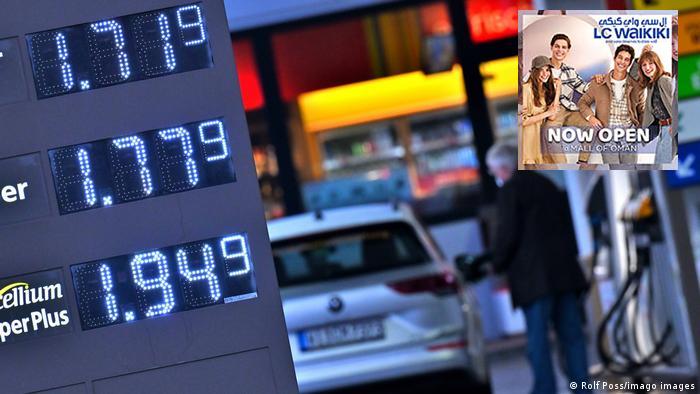
What is stagflation? What does stagflation mean? Is stagflation coming? These are some of the questions many Germans have been looking up on Google over the past few days.
The sudden interest in a rather extreme economic phenomenon has been fanned by some recent investor and analyst commentaries that have flagged stagflation concerns, citing faltering economic growth and a steep rise in energy prices.
According to Google Trends data, the interest in the economic event has been trending at its highest level since the 2008-09 global financial crisis. It's no different in other major economies, including the US which is also seeing a steep rise in prices.
People in the United Kingdom are seemingly most worried, with interest in the term trending at an all-time high, spooked by long lines at gas stations over the past weeks, which offered a grim reminder of the stagflation period of the 1970s.
What is stagflation?
Stagflation is an economic event characterized by high inflation and stagnating growth plus high levels of unemployment.
The term was first used by British politician Iain Macleod in 1965 to describe what he thought was "the worst of both worlds — not just inflation on the one side or stagnation on the other, but both of them together."
Stagflation can complicate matters for policymakers — governments and central banks — who are responsible for boosting growth and keeping prices in check. That's because policies aimed at reining in inflation could lead to slower growth and higher unemployment, and measures taken to boost output and jobs could end up driving up prices.
It is impossible to implement both sets of policies at once, so "there is no obvious macroeconomic policy response," Andrew Kenningham, the chief Europe economist at Capital Economics, told DW.
For people, the impact of stagflation is twofold. Firstly, it means fewer jobs as the economy enters a recession or growth slows. Secondly, rising prices lead to lower purchasing power. People end up paying a bigger chunk of their income on essentials like food and fuel, which reduces their spending power for other items.